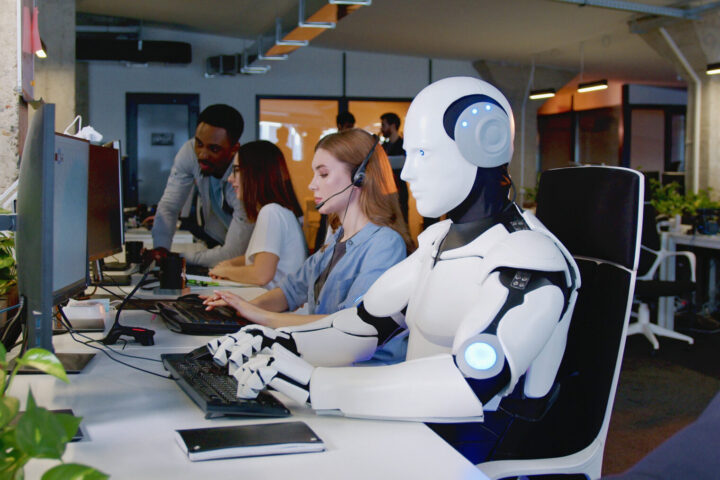South Tyneside and Sunderland NHS Foundation Trust (STSFT) brought in software robots, called ‘digital workers’, to handle GP referrals.
The trust used robotic process automation (RPA) to automate repetitive admin, cutting down the time staff spent on paperwork.
Rebecca Dempster, directorate manager for outpatients and clinical administration, Olive Williams, electronic referrals system manager, Michael Forrest, outpatient access and booking manager, Vicky Mitchell, executive director of planning and business development, Louise Gustavson, professional services (EMEA) head of healthcare business for SS&C Blue Prism, and Graeme Miller, business change manager for the trust, worked on the project.
The trust took more than 136,000 referrals each year for routine and suspected cancer appointments.
Since starting with digital workers, over 8,000 staff hours have been saved.
It used to take up to 10 minutes for staff to register a referral, but now it takes four minutes as digital workers can process referrals overnight.
Clinical teams review referrals within 48 hours, and often within 24 hours.
The digital workers also book patients for lung cancer screening.
Around 60,000 people in Sunderland and South Tyneside qualify for a lung check.
Now, about 2,000 people are booked in every month by the digital workers.
Each digital worker does the work of three admin roles but no NHS jobs have been lost, as staff now focus on more complex tasks like talking to patients instead of admin.
Forrest said: “We’re delighted about how the digital workers are making a difference so far by helping us to see patients sooner and reducing risk to them.
“It’s especially important for people to get answers quickly if they are waiting to find out if they have cancer or not, and to get an appointment when they are waiting for treatment to start.
“It’s also helped the team, because it’s eased the stress of having that backlog of patients and knowing people are now being seen sooner.”
Forrest added: “Looking after our team is so important. They’re now able to concentrate on more fulfilling, interesting work, because they’re not doing these labour-intensive, administrative tasks.”
Helen Bone, lung cancer screening programme manager for the STSFT, said: “Our admin team can now focus on other key aspects of the Lung Screening Pathway.
“It has saved us hours of time each week and the positive impact cannot be underestimated.”
Mitchell said: “Using robotic automation and artificial intelligence is a key part of our digital strategy for the trust and will be a key to everything we do for the future.
“The newly published NHS 10 Year Health Plan focusses on how we need to use digital solutions much more.
“Our first digital workers here at STSFT are already showing the productivity and efficiency gains we can make.”
Mitchell added: “Using this technology has helped plug gaps in our workforce, while looking after our fantastic admin team, who are working hard to make sure we see patients as quickly as we can.”
“We are now looking at where we can roll out more automated processes in other parts of our outpatient services and building on the success of the digital workers in our scheduling teams.”

















